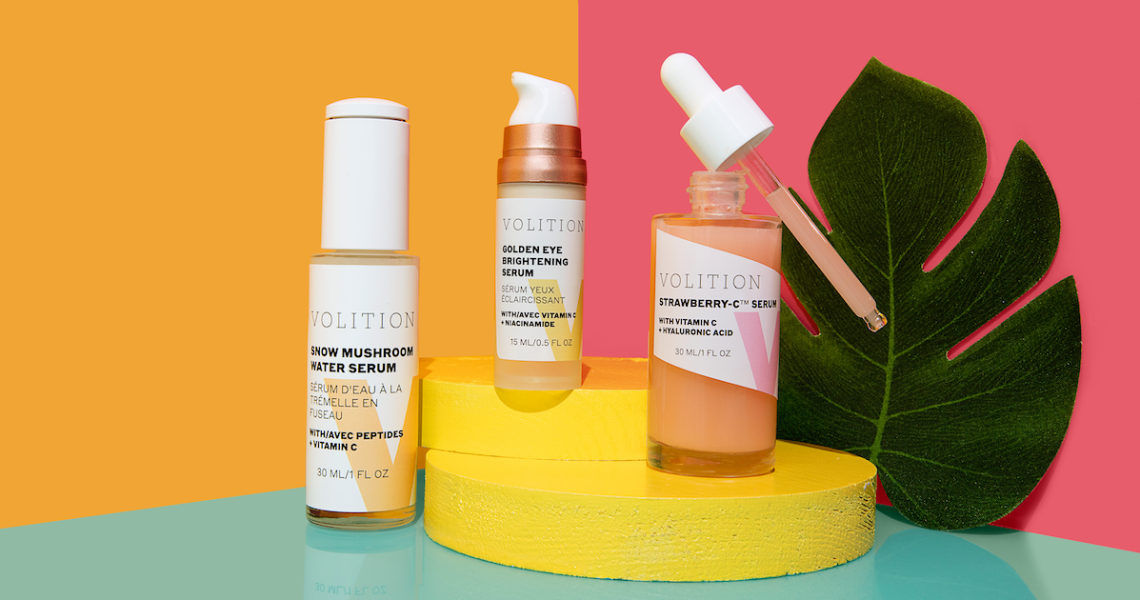This week, I take a look at a new accelerator program from Volition Beauty, which is stepping into the venture funding spotlight as traditional VC firms pull back.
On Tuesday, crowd-sourced beauty brand Volition Beauty expanded its business proposition through a newly established accelerator for content creators, just as traditional venture capital firms pull back on early-stage funding.
The accelerator functions as a kind of Y Combinator for content creators by offering them the chance to develop products using Volition’s full suite of back-end and front-end services, ranging from product development to digital advertising.
Starting Tuesday and until January 31, 2024, applicants can submit a beauty concept through Volition’s website. Submissions are judged by the Volition executive team, which is seeking content creators who are passionate about beauty and have a point of view, said Patricia Santos, CEO and co-founder of Volition Beauty. Content creators must also be at least 18 years old and have a minimum of 500,000 followers on social media across Instagram, TikTok and YouTube with highly engaged audiences.
Ultimately, 10 content creators will be selected, making up what is Phase 1 of the accelerator program. Those 10 people each will leverage Volition resources to create and sell a product. An undetermined number of creators behind the best-selling products will then move on to Phase 2 for a chance to develop a full brand. Phase 2 will include a fully-expensed one-day workshop in New York City with the Volition Beauty team and one of its investors, Emil Capital Partners. Santos said this accelerator program arose from conversations with Emil Capital Partners and the tough investing landscape for early-stage brands.
“Goal No. 1 is to expand our reach and get additional types of creators and products into our [product development] funnel,” said Santos. “Additionally, it’s been super disheartening to see how much VC funding has dried up for early-stage entrepreneurs. … It’s impossible to raise money now. So now is a good time for Volition to say, ‘Hey, you don’t need VC funding. We’re here.'”
As Glossy recently reported, venture funding, a common source of liquidity for indie brands, is becoming harder to come by. According to KPMG, citing 2023 data from Pitchbook, the consumer goods and services sector has seen the least number of venture deals closed since 2016 and the smallest amount of venture funding raised. According to Pitchbook, Volition has raised at least $9.35 million in outside capital, including from Unilever Ventures. Seven-year-old Volition, which sells an assortment of products through retailers like Sephora and Ulta Beauty, declined to share its revenue or growth figures.
In 2020, Glossy reported on Volition’s partnership with NBCUniversal. That ongoing partnership involves pairing NBCUniversal talent with Volition, with the latter serving as a product incubation platform for the former. Santos said the Volition has focused on the partnership over the last three years and, in the last 12 months, has become an as-needed white-label partner for NBCUniversal talent who establish their own brands. Volition has created nine products to date with NBCUniversal. People and products have included the Yaupon Tea Glow-Awakening Moisturizer, co-developed by Maryse Mizanin, a WWE wrestler and star of USA Network’s “Miz & Mrs” reality show. In 2024, Ashley Darby from “The Real Housewives of Potomac” and Sanya Richards-Ross from “The Real Housewives of Atlanta” will release their own undisclosed products.
“There was a big boom of VC funding for any celebrity, content creator or entrepreneur who wanted to start a brand, and it offered a lot of room to make mistakes because the funding just kept coming,” said Santos. “[Now] you have to have a great product that is resonating with a consumer [from the beginning] and make that product profitably.”
Phase 1 content creators receive a similar deal to Volition’s crowd-sourced collaborators, who submit their beauty ideas to the company, including an undisclosed upfront cash component. The New York Times reported in 2019 that some Volition collaborators expected to earn $30,00-$100,000 from their co-creations, depending on the sales performance of their product. Content creators who are brought into Phase 2 receive a combination of $50,000 in cash plus back- and front-end services, totaling $400,000 or more in value. Volition intends to take a percentage of equity, but Santos said it will be flexible depending on the investment. By comparison, Y Combinator invests $500,000 into its accelerator brands and takes a 7% equity plus a fixed amount of incremental equity when a company raises money from other investors.
Cansu Arslan, a board member of Volition Beauty and an investor at Emil Capital Partners, said there is potential for Emil Capital Partners to separately invest in a brand that emerges from Phase 2. Phase 2 will consist of a one-day intensive workshop covering different topics that have not been finalized. A date has also yet to be determined. The program is designed around fostering connections with retailers, venture capital firms and brand-building education.
“We want to allow others who have great ideas to be able to enter the beauty space, which is also Volition’s mission to democratize this process,” said Arslan. “On top of that, we think beyond the check [we write] as we help founders build successful businesses. We haven’t seen anything like this accelerator before, where [content] creators can test their ideas in an iterative process.”
Santos said a broader marketing plan promoting its incubation program will roll out, but details are not finalized.
Inside our coverage:
Inside the bumpy return of Glossier’s Inside the Gloss.
Sephora bets on sensitive skin fragrances.
Tarte details its successful TikTok Shop strategy.
What we’re reading:
Discounting isn’t swaying Chinese beauty customers.
Shiseido launches corporate venture capital fund.
Rare Beauty expands to body care.




